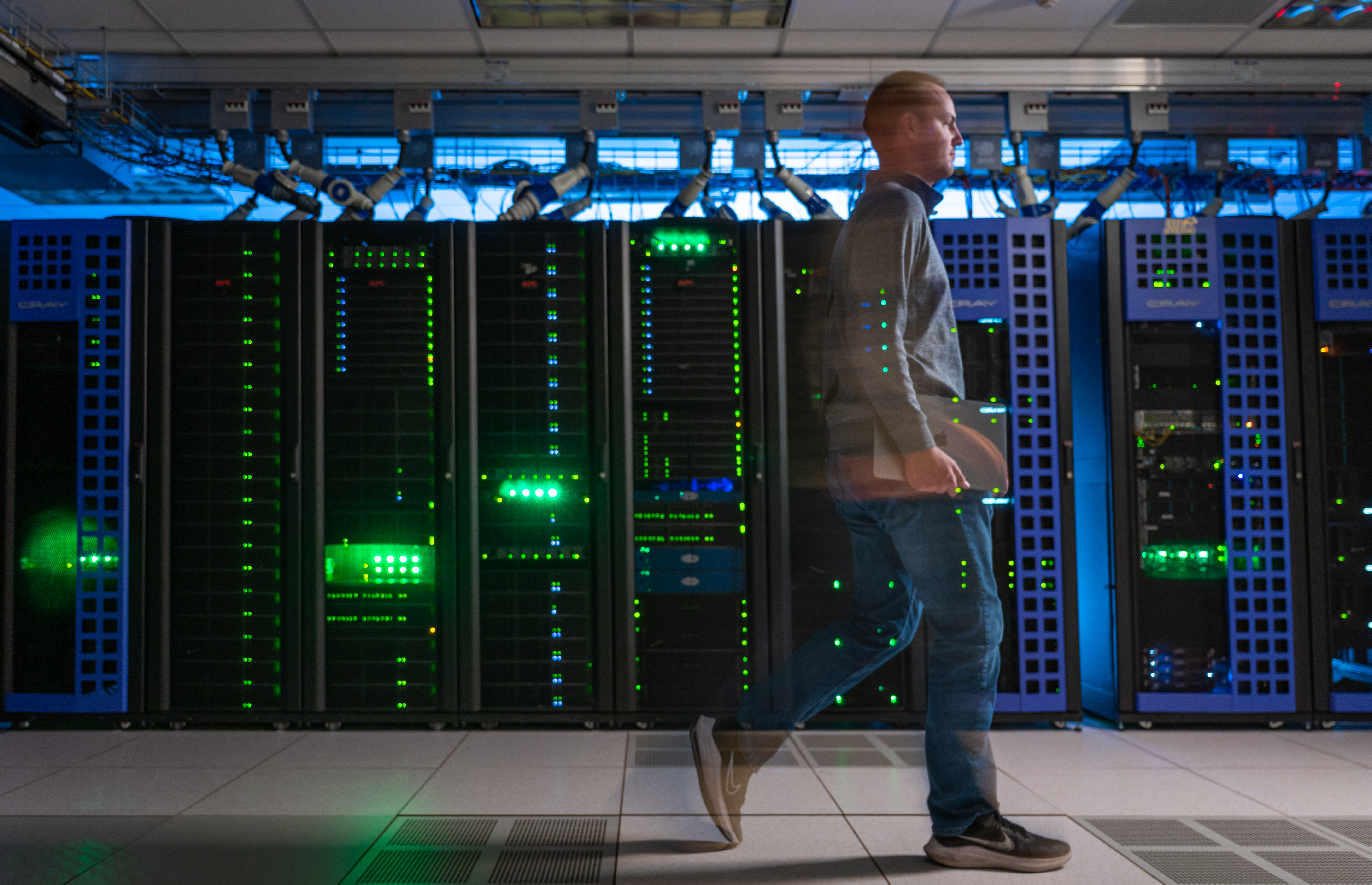Conference on Computational Science
October 18, 2023 - 8:00 a.m. to 5:00 p.m. - NDSU Memorial Union's Oceti Sakowin Ballroom
This in-person only event is open to the entire campus. The talks will run from 8:30 a.m. to 3:30 p.m., and the poster session from 3:30 - 5:00 p.m.
Summary
The 2023 Conference on Computational Science is the first of its kind co-organized by NDSU’s Information Technology (IT) Division and the Office of Research and Creative Activity (RCA). It brings together researchers from various research fields (agriculture, business, engineering, natural sciences, social sciences and humanities, and others) and aims to showcase and promote computational-related research at NDSU and foster interdisciplinary collaboration.
The one-day conference features over a dozen invited speakers from multiple colleges, a poster session, as well as remarks/updates from university administrators. The talks are intended for a broad audience and represent different computational-related research areas at NDSU. The posters can be more technical and are expected to go into the research in more detail. Three best posters from students will be awarded with prizes.
Register for the Conference
Please register here (sign in using your NDSU credentials) by 1:00 p.m. on October 4, 2023.
Present at the Poster Session
NDSU students, faculty, and staff are also invited to present at the poster session. Posters whose first author and presenter is a student are eligible for consideration for a prize. Please submit a poster abstract as a Word attachment to Dr. Khang Hoang (khang.hoang@ndsu.edu) by September 25, 2023.
The Word document should include the title of the presentation, list of authors (with the main presenting author's name underlined) and affiliations, abstract (max 300 words, no pictures or graphs), and email address of the presenter.
Student presenters: Please also indicate in the abstract if you would like your poster to be considered for a prize. To reduce burden on the Poster Judging Panel, only posters that enter the competition will be evaluated. Further instructions will be sent to you after we receive your abstract.
Program
Click here for the full program (invited talks, poster presentations, and abstracts)
- 08:00–08:30 CHECK IN
- 08:30–08:40 Opening remarks.Vice President Marc Wallman. Conference overview. Khang Hoang (IT/CCAST)
- 08:40–09:00 In silico examination of breast cancer and prostate cancer bone metastasis. Dinesh Katti (Civil, Construction and Environmental Engineering)
- 09:00–09:20 Text mining for U.S. pension de-risking analysis. Limin Zhang (Accounting and Information Systems), Ruilin Tian (Transportation, Logistics, and Finance), Jeffrey Chen (Transportation, Logistics, and Finance)
- 09:20–09:40 NDSU's comprehensive approach to agriculture, food systems, and natural resources. Frank Casey (ND Agricultural Experiment Station)
- 09:40–10:00 "Prevent brain cancer with just three easy steps!": Identifying medical misinformation on social media with a neural network using rhetorical feature sets. Zoltan Majdik (Communication)
- 10:00–10:20 COFFEE BREAK
- 10:20–10:40 Toward exascale computing for patient-specific design of cardiovascular prosthesis. Trung Le (Civil, Construction and Environmental Engineering)
- 10:40–11:00 Modernizing agriculture with data-driven solutions: The NDSU's Big Data Pipeline Unit Initiative. Ana Heilman-Morales (Big Data Pipeline Unit)
- 11:00–11:20 Machine learning in materials design. Bakhtiyor Rasulev (Coatings and Polymeric Materials)
- 11:20–11:40 From cells to societies: Unveiling patterns with multiplex network analysis. Harun Pirim (Industrial and Manufacturing Engineering)
- 11:40–12:00 Advanced cyberinfrastructure for computational research and education. Pete Lambertz (IT/Enterprise Computing & Infrastructure) and Khang Hoang (IT/CCAST)
- 12:00–01:00 LUNCH. Special remarks/legislative updates from Provost David Bertolini and Vice President Marc Wallman
- 01:00–01:20 Research updates/special remarks.Vice President Colleen Fitzgerald
- 01:20–01:40 Do sanctioning and monitoring affect elites' online toxicity? Evidence from a field experiment on U.S. general election candidates. Dan Pemstein (Political Science)
- 01:40–02:00 Emerging technology driven memory system designs. Sumitha George (Electrical and Computer Engineering)
- 02:00–02:20 COFFEE BREAK
- 02:20–02:40 Redesigning the next-generation pulse crops with genetic innovations. Nonoy Bandillo (Plant Sciences)
- 02:40–03:00 Leveraging large language models for genomic sequence analysis. Changhui Yan (Computer Science)
- 03:00–03:20 Impact of covalent functionalization of nanostructures on their optical properties: Computational insights. Svetlana Kilina (Chemistry and Biochemistry)
- 03:20–05:00 POSTER SESSION (~40 poster presentations). Poster Award Ceremony (4:30–5:00)




